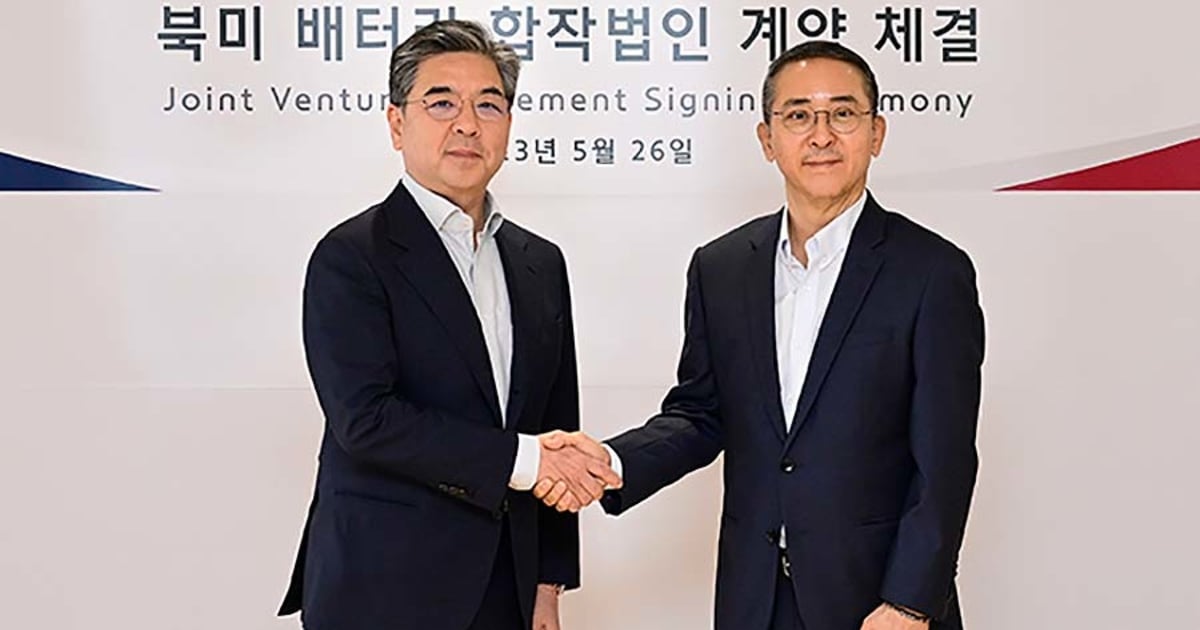
Hyundai Motor Group took another step to complete the puzzle for its new $5.5 billion electric vehicle production hub in southeast Georgia with the announcement Friday of a deal to source battery cells through a $4.3 billion joint venture with supplier LG Energy Solution.
The companies will each hold a 50 percent stake in a new battery plant, to be constructed in Bryan County with enough annual capacity to produce 30 gigawatt hours of batteries, which can power 300,000 EVs annually.
It will be the second new U.S. battery plant to serve Hyundai.
The LG deal follows a similar supply agreement that Hyundai inked with South Korean battery supplier SK On Co. for a $5 billion battery plant in Bartow County, Ga. That plant will have an annual production capacity of 35 GWh and is expected to mainly supply Hyundai Motor Group auto plants in West Point, Ga., and Montgomery, Ala. Construction of the LG joint venture plant will begin this year, with production scheduled for as early as the end of 2025.
Diversifying suppliers for a key component, such as vehicle batteries, is about creating redundancy and obtaining batteries with different form factors and chemistries.
“Having choices means OEMs can design and market EVs with differing performance levels, range and price,” said Conrad Layson, senior analyst at AutoForecast Solutions. “Most importantly, diversifying the battery supplier base relieves the OEMs from being dependent on issues at any one battery supplier.”
The new Hyundai assembly plant, located outside Savannah, Ga., will build six electric models and open by early 2025. The 2,800-acre project will have an initial production capacity of 300,000 EVs annually. However, that total could rise to 500,000, based on demand.
The passage of the Inflation Reduction Act, which incentivized North American EV and battery manufacturing, has opened the investment floodgates. Since the law passed in August, automakers and suppliers have announced more than $11 billion in EV battery investments.
Hyundai has pledged $16 billion globally through 2030 for EVs and aims to sell 3.23 million battery-powered vehicles globally by then.
Hyundai and Kia delivered around 119,000 EVs during the first quarter of 2023, down 2.2 percent from a year ago, according to SNE Research, a Seoul-based research firm.
Carly Schaffner contributed to this report.

